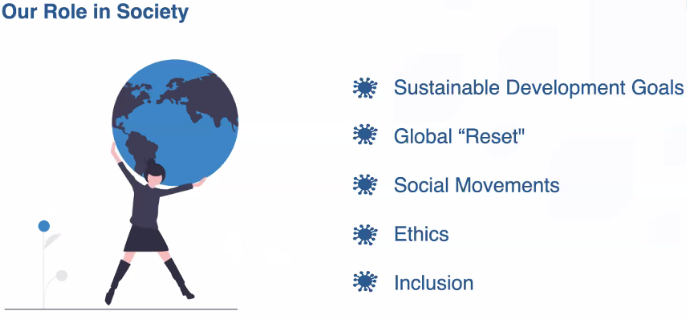In January we had the chance to join the webinar entitled ‘Communications Trends in 2021 and Beyond’ that was organised by the International Public Relations Association (IPRA) Philippines. Philippe Borremans, president of IPRA (Emergency Risk & Crisis Communication consultant and certified trainer), held a presentation as well, his topic being The long-term impact of the ‘new normal’ on the Public Relations profession. He talked about our changed way of working, sustainable development goals, PR ethics and the pandemic’s impact on our mental health, stress level and burnout. As he called it, the ‘4th wave’. We found this issue particularly exciting so we interviewed Philippe to gain greater insight into these topics.
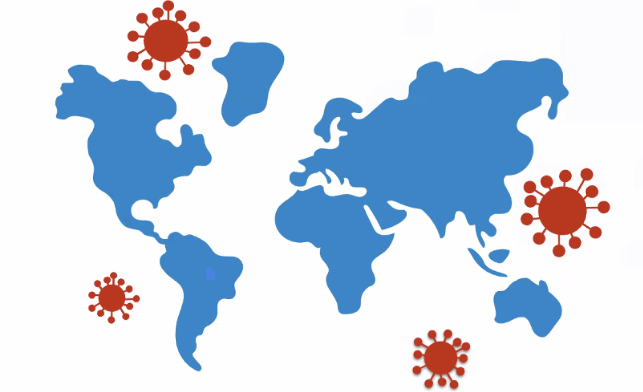
In your opinion, has the role of Public Relations changed since the pandemic broke out? If so, how?
“No, it has not changed in the way that Public Relations is about informing, translating complex concepts and adapting these to a multitude of audiences. Has the pandemic impacted our profession? Definitely. Good communicators now understand that their activities, and the activities of the organisations they work with, do not happen in a restricted and controllable ecosystem. The interdependence of industry, public policy, brands, consumers, and influencers has been clearly demonstrated over the last 300 days. Public Relations professionals are the only ones skilled and trained to identify these links, interpret them and propose solutions to complex communication challenges.”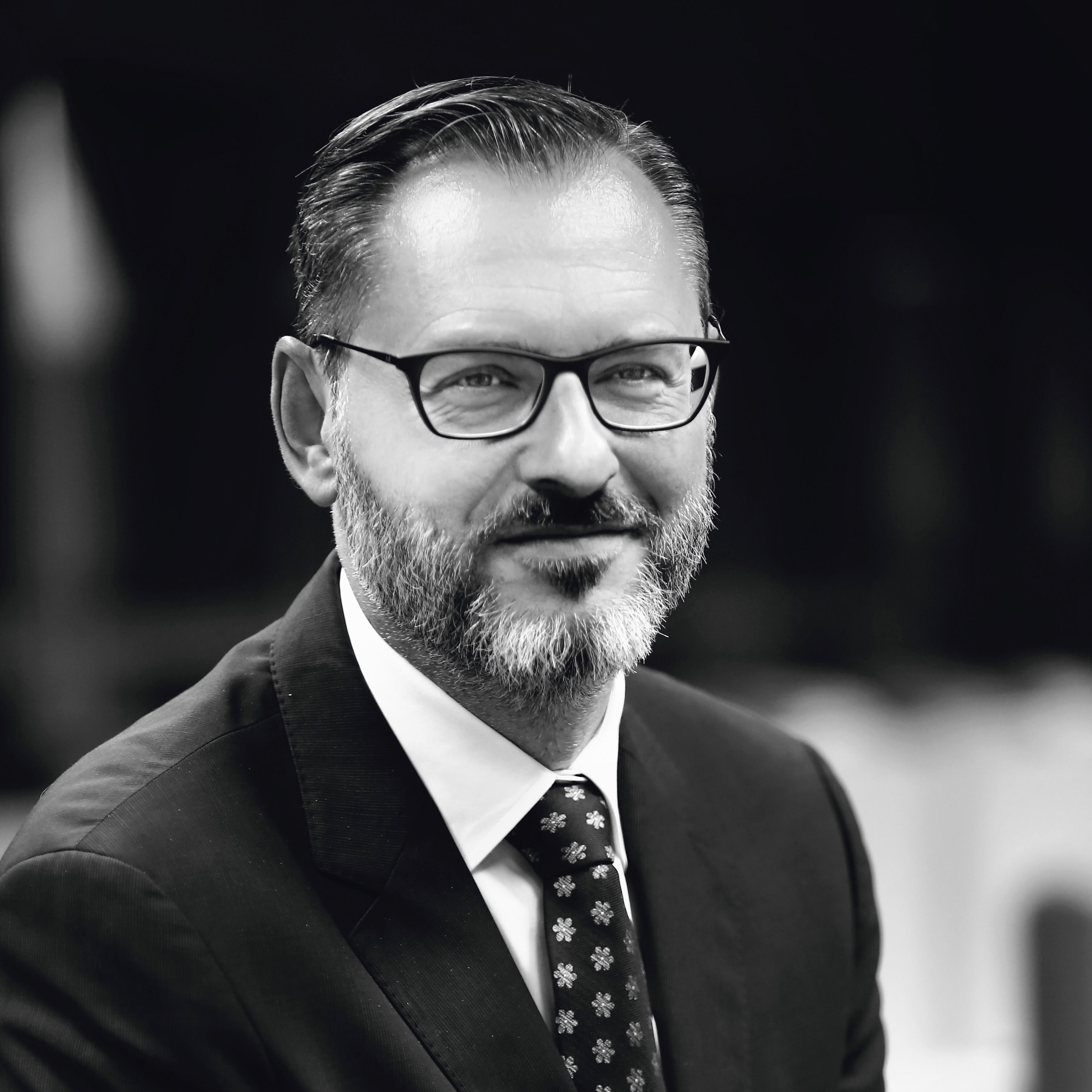
In what direction do you see the role of Public Relations shifting in 2021? What do we need to do to overcome the new challenges and our changed role in PR?
“I really hope that organisations now fully understand the ‘life and death’ importance of good, transparent and ethical communication. And that by recognising this, our role will become more strategic and one of corporate counsel. I have clearly seen this with our Internal Communication colleagues. Finally, they are recognised for what they are; true internal consultants, with a finger constantly on the pulse of the company, the lifeline and soundboard between the organisation and its employees. Not just the ones who publish the CEO quarterly update.
And this is changing for external communicators as well. There is now an increasing interest in science-based communication, complex stakeholder and community analysis, the ‘digitisation’ of our profession etc... All these fields are crucial for us as a profession and industry. We need to step up now and see this as an opportunity to learn and grow into the specialised professionals we are.
To get there, we need to invest much more in professional education, make it more accessible. We need to integrate ethics into everything we do, not because it is a ‘nice concept’ to support but because it is the fundament of trust and good Public Relations. And we need a far more integrated approach among our different disciplines and we need to work hand in hand with our academic colleagues.”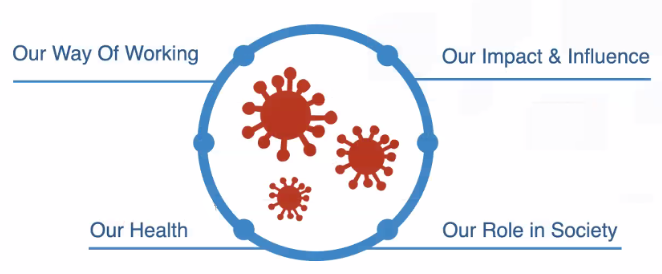
In your view, has the PR toolbox changed since the outbreak of COVID-19, and if so, how?
“I have a newsletter exactly about that (see: www.prtoolz.com). Apart from the obvious shift to online meetings, COVID-19 has accelerated the digitisation of our profession drastically. I see more prominent examples of professional online newsrooms, the use of audio and video as podcast series and interactive video programmes, and even small steps in using artificial intelligence. When I planned the Virtual Public Relations Summit in 2019, I never thought online summits would become ‘the standard’ but I now see many different formats for large online conferences. It brings a new positive dynamic to our profession and will support the exchange of experiences from across the world. By definition, that's a good thing. So overall I feel optimistic about these changes and hope we continue to find novel ways to integrate technology in our day-to-day work.”
Have you seen any PR project recently that is ethically objectionable?
“We all know the big cases such as Bell Pottinger etc... But I think we also need to ask ourselves the following question: can I, based on my morals and ethics, work with and represent this organisation as I should? Because let's not forget, we're often the public face of an organisation and we are supposed to play ‘devil's advocate’ when corporate reputations are at stake. Ethics is both a professional and a personal issue. We have our clearly defined ethical codes - so if you, as a communicator, cannot respect and adopt these, then you have no place in our profession. Organisations as such are not ‘ethically objectionable’, it is the executives, the people who decide who are not following ethics.”
And vice versa, can you mention a PR project that is a good example in its ethical aspect?
“The winner of last year's IPRA Golden Award is definitely just such an example. BBK Foundation is first of all an organisation with a true (and important) purpose. But their last campaign, to initiate a conversation on a topic as taboo as loneliness amongst the elderly, was executed in a very respectful and ethical way. (See more here: https://www.ipra.org/golden-world-awards/winners/.)”
How can PR professionals avoid burnout in a time of pandemic? Moreover, what can we do if we are already burnt out?
“Mental health is and will be one of the toughest challenges to face and solve in the next four years. Even before the pandemic, PR professionals suffered from regular stress and burnout. In the UK, more than a quarter (26%) of PR professionals find their job extremely stressful compared to 18% of the general public. Unmanageable workloads (55%), the impact of coronavirus (44%) and poor work-life balance (43%) were cited by PR professionals as the most common causes of stress, according to a report published last year by the PRCA and Opinium. (See: https://news.prca.org.uk/prca-opinium-research-covid-19-caused-significant-stress-pr-practitioners/.)
In many countries, mental health is taboo, but it shouldn't be. The best way to avoid stress is to talk about it. Senior management should have an open door policy or work with mental health professionals so that employees know who they can turn to. Stress affects everyone differently, but there are common signs you can look out for and the best way to cope is getting enough sleep, a balanced diet and exercise, among other things. One online resource which is very professional and free is Everyone OK (see here: https://www.everyoneok.be/). This online intervention can help you feel calmer and keep you functioning day to day. It’s a scientifically sound step-by-step plan of about 45 minutes. You can go through it alone, or with your partner or family. It was created by clinical psychologist Elke Van Hoof and is founded on the internationally recognised R-TEP protocol (Recent Traumatic Episode Protocol) and G-TEP protocol (Group Traumatic Episode Protocol). These protocols are used to deal with acute stress in crisis situations and to improve mental resilience.”
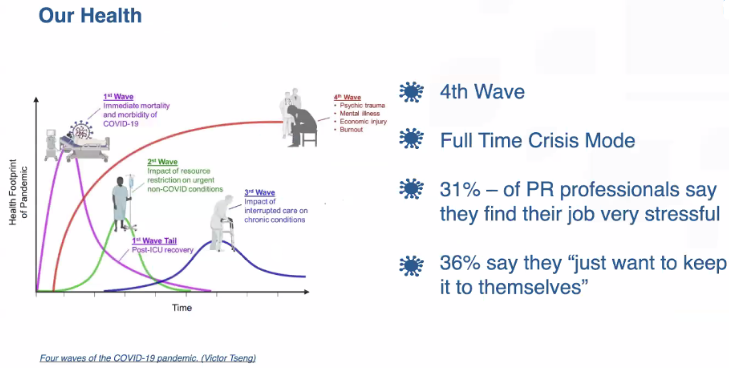
In your opinion, what is the most important task of a PR professional in 2021?
“That would be to listen for, and feel changes in society and then use science-based communication to help shape a narrative, ideas and actions. Our organisations - be they private, public or nonprofit - are all under pressure. Political, social and environmental changes are constant and stakeholders are more active than they have ever been. It takes a communication professional to navigate these waters, build bridges, explain strategies and make an impact. We are the only profession with the skills to navigate complex relationships with a multitude of key audiences. So in short, let's take up our role and our responsibilities, based on strong ethics and transparency.”
IPRA
IPRA, the International Public Relations Association, is the leading global network for PR professionals in their personal capacity. The association aims to advance trusted communication and the ethical practice of Public Relations. IPRA is the organiser of Public Relations' annual global competition, the Golden World Awards for Excellence (GWA). IPRA's services enable PR professionals to collaborate and be recognised. Members create content via their Thought Leadership essays, social media and their consultative status with the United Nations.
Philippe Borremans
Philippe Borremans is an independent Public Relations consultant specialising in Emergency Risk & Crisis Communication and president of the International Public Relations Association. He works on strategic communication projects for epidemic and pandemic preparedness with organisations like the World Health Organization, the European Union, and the West African Union. He is a regular guest lecturer at universities and business schools across Europe and North Africa.
Author: Szilvia Tóth, junior PR manager of Salt Communications Kft.
If you would like to contact us, write us on the Salt Communications page, the contact details can be found HERE.

